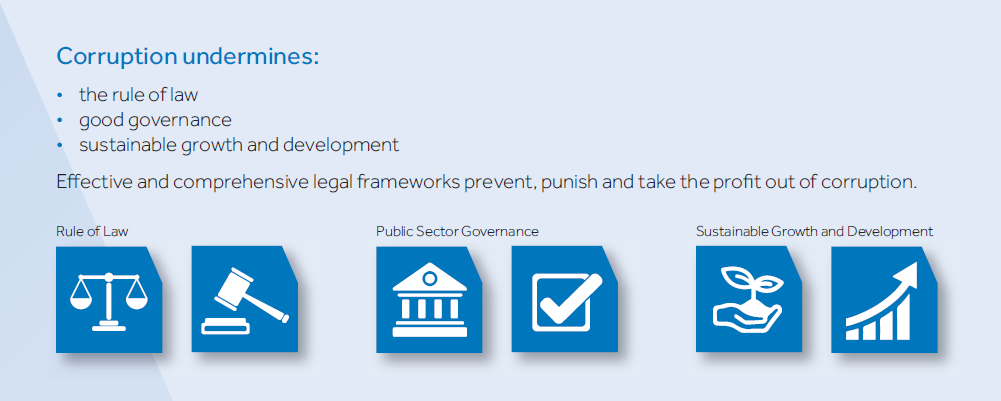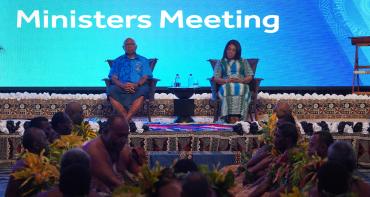The Commonwealth Secretariat, International Monetary Fund (IMF) and United Nations Office on Drugs and Crime (UNODC) have just published a new book which brings together guidance on how to tackle corruption.

The Commonwealth Secretariat, International Monetary Fund (IMF) and United Nations Office on Drugs and Crime (UNODC) have just published a new book which brings together guidance on how to tackle corruption.
Model Legislative Provisions on Money Laundering, Terrorism Financing, Preventative Measures and Proceeds of Crime will be officially launched by the Commonwealth Secretary-General, Patricia Scotland, when she speaks to an audience at Transparency International. The publication coincides with International Anti-Corruption Day on 9 December.
“What this book does is to bring together best practice when it comes to fighting corruption,” said director of the Commonwealth Secretariat’s Rule of Law division, Katalaina Sapolu. “It’s something which has already inspired states, small and big, from all over the Commonwealth. Countries have told us this is long overdue.”
The global cost of corruption is estimated to be up to US$ 2.6 trillion every year, 20 times the world’s aid budget. The authors believe the model legislative provisions in the book will help countries develop their own laws to prevent money laundering and terrorism financing as well as recovering money lost to crime.
They share practical and universal legal frameworks that can be used by all countries to counter corruption. It forms a starting point for evaluating existing legal measures which prevent, detect and sanction illicit financial activity, and aims to assist countries in reviewing or updating their legislation.
Andrew Mitchell QC, who chaired the review panel on the model law said, “This publication of the model common law is modern and cleaner, and makes provision for the changes in the international imperative such as terrorist financing and public office corruption. It is a modular law – so countries can take different parts and apply specific aspects without having to go into involved new drafting. It also helps countries to see areas where they have or haven’t complied, enabling them to identify gaps and build upon existing legal frameworks.”
It also provides guidance on how to recover the proceeds of crime, sharing lessons from recent asset recovery projects. For example, in June, the Nigerian government said it had recovered US$1.9bn in stolen money and assets, ten times their annual national health budget.
“The United Nations Sustainable Development Goals, and particularly goal 16.4, sets an ambitious target for UN member states by 2030 to significantly reduce illicit financial flows, strengthen the recovery and return of stolen assets and combat all forms of organized crime,” Michiel van Dyk, anti-money laundering adviser at the UNODC said, “While this is a tall order, the model provisions are a vitally important tool that can assist member states achieve that goal.”
New book Model Legislative Provisions on Money Laundering, Terrorism Financing, Preventative Measures and Proceeds of Crime can be purchased at the Commonwealth online bookshop here for £35 for an e-book or £65 for a paperback.




